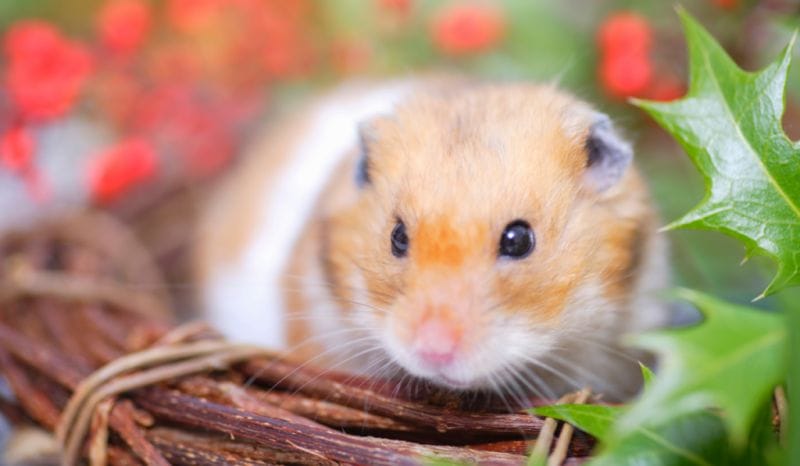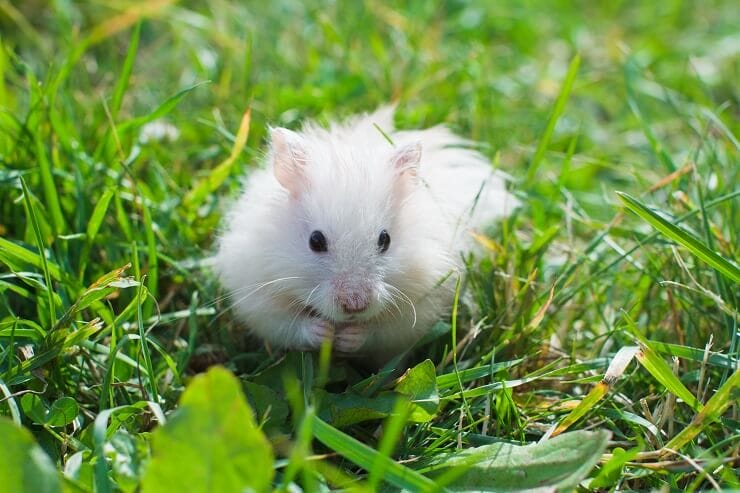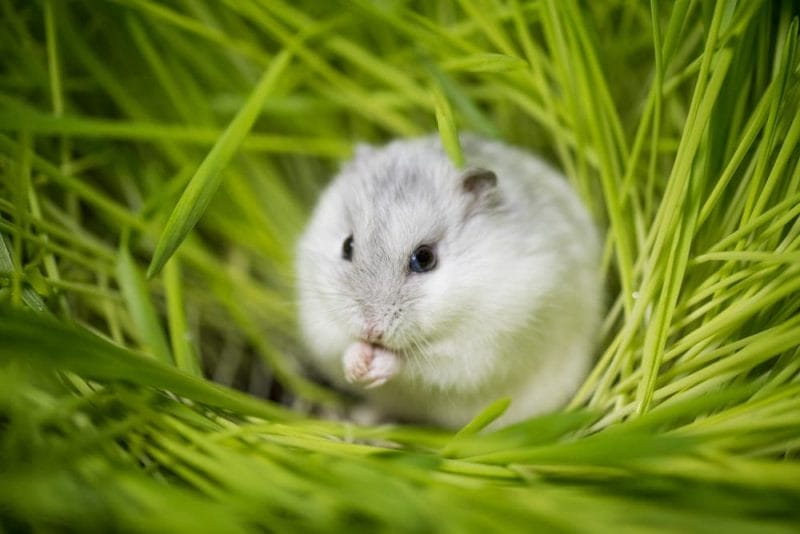Can Hamsters Eat Lemongrass? Lemongrass, scientifically known as Cymbopogon citratus, is a tall, aromatic grass native to tropical regions, particularly in South and Southeast Asia. It’s widely used in culinary and herbal medicine for its citrusy flavor and various health benefits. Lemongrass is primarily composed of essential oils, including citral, myrcene, and limonene, which contribute to its distinct lemon scent and flavor.
What is Lemongrass made of?
Nutritional composition in Lemongrass:
Can Hamsters Eat Lemongrass? Lemongrass is rich in essential nutrients and compounds that can be beneficial for hamsters:
- Essential Oils (Citral, Myrcene, Limonene)
- Vitamins (Vitamin A, Vitamin C)
- Minerals (Calcium, Phosphorus, Magnesium)
- Antioxidants
- Flavonoids
Can hamsters eat Lemongrass?
Yes, hamsters can eat Lemongrass in moderation. Lemongrass can be included in their diet as an occasional treat.

Explain why hamsters can eat Lemongrass in moderation:
Hamsters can enjoy Lemongrass because it offers several potential health benefits and a unique taste. However, moderation is essential due to its strong flavor and the possibility of overconsumption. Can Hamsters Eat Lemongrass? Here’s why Lemongrass can be a suitable addition to a hamster’s diet:
- Flavor and Variety: Lemongrass introduces variety and excitement into their diet with its citrusy taste and aroma.
- Digestive Aid: It may aid in digestion and alleviate mild gastrointestinal discomfort in hamsters.
- Antioxidant Properties: Lemongrass contains antioxidants and flavonoids that can contribute to overall health.
Benefits of feeding Lemongrass to hamster
Can Hamsters Eat Lemongrass? Including Lemongrass in your hamster’s diet can offer several advantages:
- Digestive Support: Lemongrass may aid in digestion and help with mild digestive issues.
- Flavorful Enrichment: It adds variety to their diet, making mealtimes more interesting for your hamster.
- Potential Stress Reduction: The aroma of Lemongrass can have a calming effect on hamsters, reducing stress.
Examples of health benefits of Lemongrass to hamsters:
- Potential support for digestion and relief from mild digestive discomfort.
- Aromatic enrichment that can reduce stress.
- Antioxidants that contribute to overall health.
List some nutrients, vitamins in Lemongrass that’s good for hamsters:
Can Hamsters Eat Lemongrass? Lemongrass contains essential nutrients and vitamins like Vitamin A, Vitamin C, calcium, phosphorus, and magnesium, all of which can be beneficial for a hamster’s well-being when given in moderation.

Risk of feeding Lemongrass to hamster
Can Hamsters Eat Lemongrass? While Lemongrass offers benefits, it’s important to be aware of potential risks:
- Overconsumption: Hamsters should not eat large quantities of Lemongrass, as it can lead to digestive upset.
- Purity and Quality: Ensure the Lemongrass you provide is free from pesticides or contaminants.
Compositions in Lemongrass that may not be good for hamsters:
Can Hamsters Eat Lemongrass? Lemongrass is generally safe for hamsters, but its strong flavor may deter them from overeating. The essential oils can be too intense if consumed in excess.
What if hamsters eat too much Lemongrass:
Can Hamsters Eat Lemongrass? If hamsters consume excessive Lemongrass, they may experience digestive problems such as diarrhea or stomach upset. To avoid this, offer Lemongrass in small quantities as an occasional treat.
Symptoms of Lemongrass Poisoning in Hamsters
Potential symptoms of Lemongrass poisoning:
- Overconsumption of Lemongrass can lead to the following symptoms in hamsters:
- Diarrhea
- Vomiting
- Loss of appetite
- Gastrointestinal discomfort
Examples of Lemongrass poisoning in hamsters:
Can Hamsters Eat Lemongrass? Instances of Lemongrass poisoning in hamsters are rare but typically result from excessive consumption. Monitoring your hamster’s intake and providing it in moderation can help prevent such occurrences.
How much Lemongrass can you give a hamster?
Limitation of Lemongrass in hamster diet:
Offer Lemongrass to your hamster in small amounts, such as a small piece or a pinch of dried Lemongrass. Remember that moderation is key to preventing digestive issues.
Recommend a suitable diet for a hamster with Lemongrass:
A well-balanced diet for a hamster should primarily consist of high-quality hamster pellets as the main food source. Supplement their diet with fresh vegetables, a small amount of fruits, and occasional treats like Lemongrass. Can Hamsters Eat Lemongrass? Consult with a veterinarian or an experienced hamster owner for specific dietary recommendations tailored to your hamster’s breed and age.

Alternatives and Supplements
Specify 5 examples of leaves that hamsters can eat with short benefits for each:
- Dandelion Leaves: Rich in fiber and vitamins, supporting digestion and overall health.
- Basil Leaves: Adds flavor and potential stress reduction.
- Kale Leaves: Provides essential vitamins and minerals for hamster well-being.
- Mint Leaves: May aid digestion and offer a fresh taste.
- Parsley Leaves: High in Vitamin C and calcium, promoting strong bones.
Give 3 iconic examples of hamster food:
- Hamster Pellets: A staple in a hamster’s diet, providing essential nutrients.
- Fresh Vegetables: Offer variety and vitamins to their diet.
- Insects (Mealworms or Crickets): Excellent sources of protein for hamsters.
Can hamsters have Lemongrass?
Yes, hamsters can enjoy Lemongrass in moderation as an occasional treat.
Should I have a consultation with a vet before feeding Lemongrass to my hamster?
While Lemongrass is generally safe, it’s a good practice to consult with a veterinarian before introducing any new food into your hamster’s diet, especially if you have concerns.
What are symptoms of Lemongrass Poisoning in hamster?
Symptoms of Lemongrass poisoning in hamsters may include diarrhea, vomiting, loss of appetite, and gastrointestinal discomfort.
How to introduce Lemongrass to hamsters?
Start by offering a small piece of fresh Lemongrass or a pinch of dried Lemongrass as an occasional treat. Monitor your hamster for any adverse reactions.
Can Syrian hamsters eat Lemongrass?
Yes, Syrian hamsters can eat Lemongrass in moderation, just like other hamster breeds.
Can Roborovski hamsters eat Lemongrass?
Yes, Roborovski hamsters can safely consume Lemongrass.
Can Teddy Bear hamsters eat Lemongrass?
Yes, Teddy Bear hamsters can enjoy Lemongrass as part of their diet.
Can Chinese hamsters eat Lemongrass?
Yes, Chinese hamsters can safely consume Lemongrass.
Can dwarf hamsters eat Lemongrass?
Yes, Dwarf hamsters can eat Lemongrass in small quantities.
Can Winter White hamsters eat Lemongrass?
Yes, Winter White hamsters can include Lemongrass in their diet.
If you take the time to educate yourself about hamster care and respect your pet’s personal space while also giving it adequate hamster breed, hamster food, exercise, and entertainment, as well as maintaining a clean environment and good health, you and your hamster should enjoy a long and happy life together. Visit our site http://hamstercare.net/
